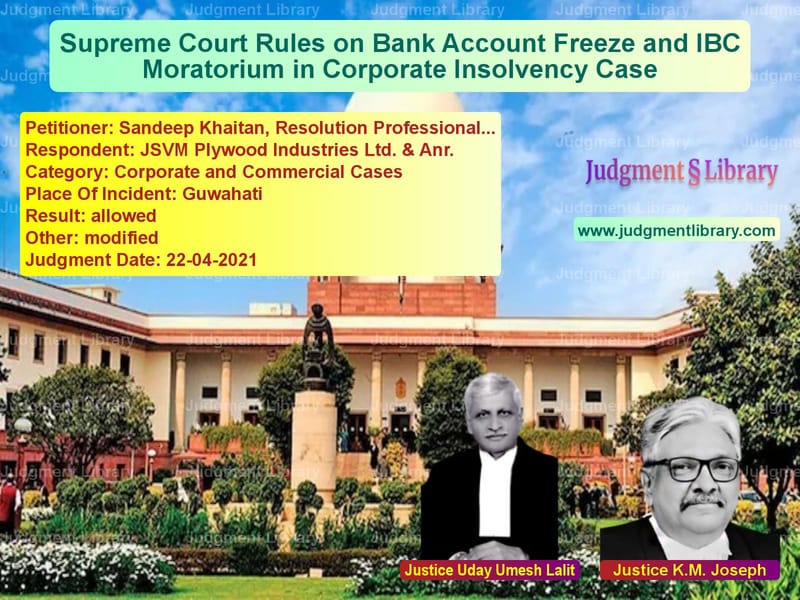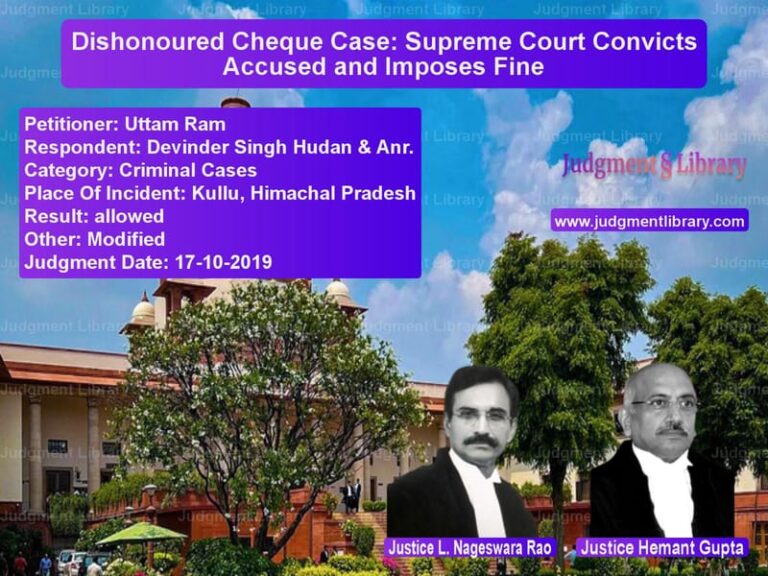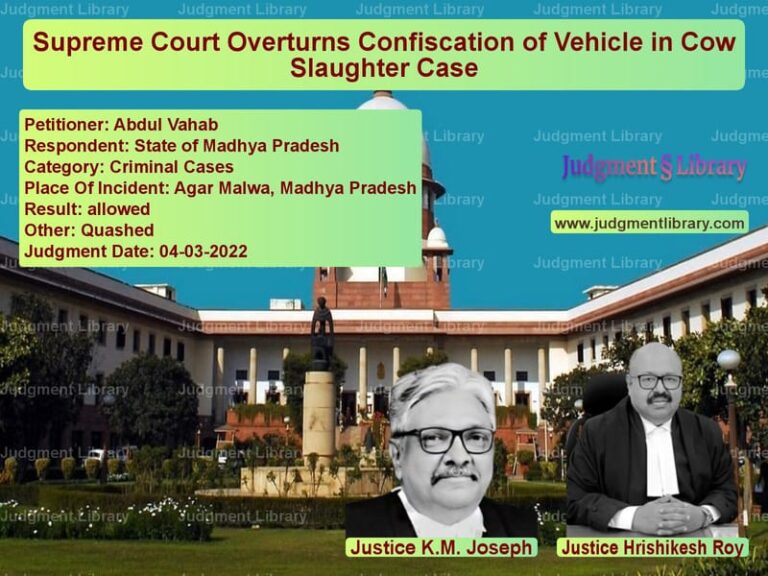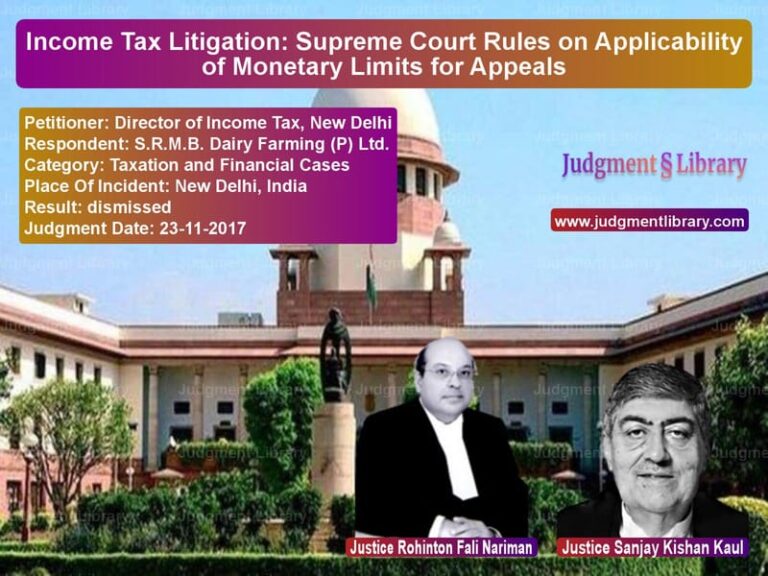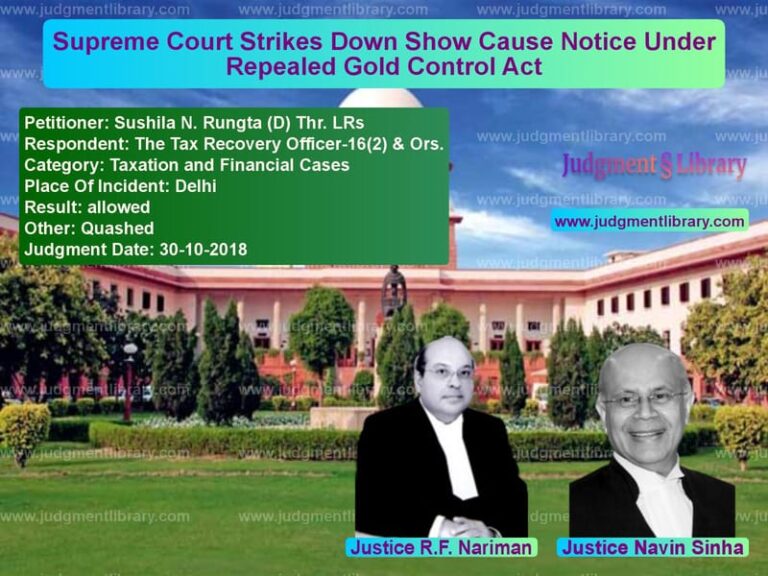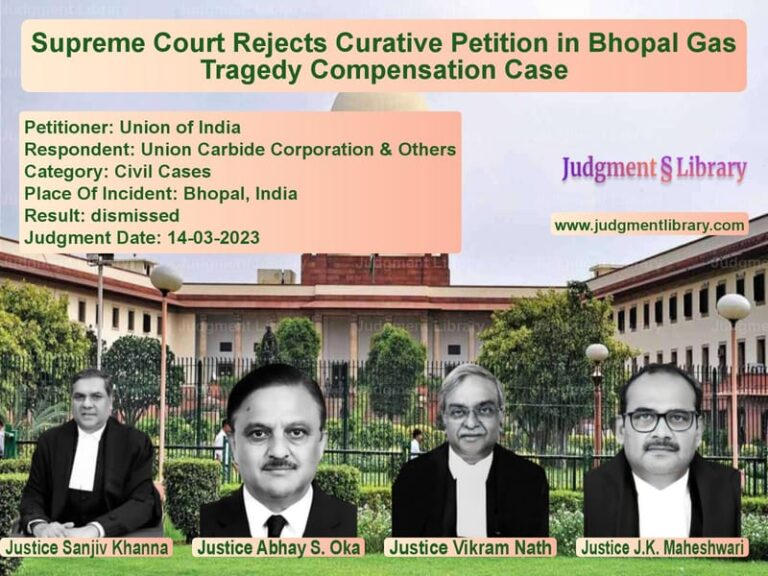Supreme Court Rules on Bank Account Freeze and IBC Moratorium in Corporate Insolvency Case
The Supreme Court of India recently delivered an important judgment in Sandeep Khaitan, Resolution Professional for National Plywood Industries Ltd. v. JSVM Plywood Industries Ltd. & Anr., addressing issues related to the moratorium under the Insolvency and Bankruptcy Code, 2016 (IBC), the powers of the Resolution Professional (RP), and the validity of a High Court order allowing the operation of frozen bank accounts during Corporate Insolvency Resolution Process (CIRP).
Background of the Case
The dispute arose when National Plywood Industries Ltd. (NPIL) was admitted into insolvency proceedings on August 26, 2019, under Section 7 of the IBC. The appellant, Sandeep Khaitan, was appointed as the Interim Resolution Professional (IRP), later confirmed as the Resolution Professional (RP). A moratorium under Section 14 of the IBC was imposed, preventing any transfer of NPIL’s assets during CIRP.
During this period, an amount of Rs. 32.50 lakhs was transferred from NPIL’s account to JSVM Plywood Industries Ltd. (Respondent No.1). The RP alleged that this transaction was unauthorized and violated the moratorium. Following a cyber complaint and an FIR, the bank accounts of Respondent No.1 were frozen.
Subsequently, Respondent No.1 moved an application before the Guwahati High Court under Section 482 of the Criminal Procedure Code (CrPC), seeking the unfreezing of its bank accounts. The High Court allowed the application, permitting JSVM to operate its bank accounts, subject to conditions. The RP challenged this order before the Supreme Court.
Issues Raised in the Appeal
- Whether the High Court had the jurisdiction to unfreeze bank accounts in a case where the moratorium under Section 14 of the IBC was in effect.
- Whether the transfer of Rs. 32.50 lakhs from NPIL to JSVM violated the IBC moratorium.
- Whether the High Court’s order was contrary to the objectives of the IBC and the jurisdiction of the National Company Law Tribunal (NCLT).
Arguments by the Petitioner (Resolution Professional)
- “The transfer of Rs. 32.50 lakhs was an illegal transaction executed by the suspended management of NPIL, violating Section 14 of the IBC.”
- “The High Court had no jurisdiction to interfere with an IBC matter, which falls under the exclusive domain of the NCLT.”
- “The moratorium under Section 14 prohibits any transfer of assets, and the High Court’s order allowing the operation of frozen accounts directly undermines the IBC.”
Arguments by the Respondents (JSVM Plywood Industries Ltd.)
- “JSVM had long-standing business relations with NPIL, and the amount transferred was a legitimate payment for raw materials supplied during CIRP.”
- “The freezing of accounts caused undue hardship and disrupted business operations, especially since JSVM is an MSME supplier.”
- “The RP’s allegations of collusion between JSVM and NPIL’s former management were unsubstantiated.”
Supreme Court’s Observations
The Supreme Court examined the provisions of the IBC, particularly Sections 14, 17, and 23, which define the powers and duties of the Resolution Professional. The Court observed:
- “Section 14 of the IBC imposes an absolute bar on asset transfers during CIRP, and any violation must be addressed under the IBC framework.”
- “The moratorium’s purpose is to maintain the corporate debtor’s financial position and prevent unauthorized transactions.”
- “The High Court, in exercising its powers under Section 482 CrPC, overlooked the exclusive jurisdiction of the NCLT in IBC matters.”
The Court also considered P. Mohanraj v. M/S Shah Brothers Ispat Pvt. Ltd., reaffirming that the moratorium applies to all proceedings affecting the debtor’s assets.
Supreme Court’s Ruling
- The High Court’s order allowing JSVM to operate its bank accounts was set aside.
- JSVM was permitted to operate its accounts only after remitting Rs. 32.50 lakhs back to NPIL’s account.
- The RP was directed to strictly manage NPIL’s assets as per the IBC.
- The ruling does not preclude JSVM from pursuing its claim for Rs. 32.50 lakhs through the appropriate IBC mechanism.
Implications of the Judgment
This ruling strengthens the enforcement of the IBC’s moratorium provisions and establishes critical legal principles:
- IBC proceedings must be handled within the framework set by the NCLT and not by High Courts using CrPC provisions.
- The moratorium under Section 14 is absolute and cannot be circumvented through unauthorized financial transactions.
- Resolution Professionals must have full control over the debtor’s assets to ensure fair resolution.
- Creditors must seek relief within the IBC framework rather than through criminal proceedings.
Conclusion
The Supreme Court’s judgment in Sandeep Khaitan v. JSVM Plywood Industries Ltd. is a significant reaffirmation of the IBC’s authority. It reinforces the principle that once CIRP is initiated, the corporate debtor’s financial transactions are strictly regulated. The decision provides much-needed clarity on the extent of judicial intervention and strengthens the role of the Resolution Professional in managing the debtor’s assets.
Petitioner Name: Sandeep Khaitan, Resolution Professional for National Plywood Industries Ltd..Respondent Name: JSVM Plywood Industries Ltd. & Anr..Judgment By: Justice Uday Umesh Lalit, Justice K.M. Joseph.Place Of Incident: Guwahati.Judgment Date: 22-04-2021.
Don’t miss out on the full details! Download the complete judgment in PDF format below and gain valuable insights instantly!
Download Judgment: sandeep-khaitan,-res-vs-jsvm-plywood-industr-supreme-court-of-india-judgment-dated-22-04-2021.pdf
Directly Download Judgment: Directly download this Judgment
See all petitions in Bankruptcy and Insolvency
See all petitions in Corporate Compliance
See all petitions in Judgment by Uday Umesh Lalit
See all petitions in Judgment by K.M. Joseph
See all petitions in allowed
See all petitions in Modified
See all petitions in supreme court of India judgments April 2021
See all petitions in 2021 judgments
See all posts in Corporate and Commercial Cases Category
See all allowed petitions in Corporate and Commercial Cases Category
See all Dismissed petitions in Corporate and Commercial Cases Category
See all partially allowed petitions in Corporate and Commercial Cases Category

